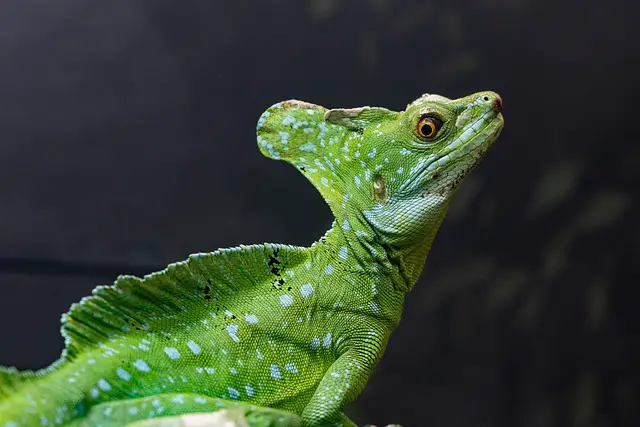Both wild and domesticated, Lizards are often thought of as cold-blooded, emotionless creatures. But if you own a lizard as a pet, you may have noticed that they seem to remember things—like being mistreated or handled roughly—and you may wonder if they can take revenge. Let’s explore this question and see what science says about it.
Do lizards take revenge?
The answer to whether or not lizards take revenge is a bit more complicated than you might expect.
While it is true that lizards are surprisingly intelligent creatures, their behavior is mainly goal-driven, and they lack the capacity for such emotions as revenge, as we understand it.
That said, when motivated by instinct, a lizard may perform an action that looks like revenge from our perspective but can also be explained in terms of self-preservation.
Of course, that does not mean that there hasn’t been exciting research into the subject—birds have been shown to remember the faces of predators when seeking justice for a previous attack—and it leads one to speculate what may yet be discovered about animal intelligence.
The Role of Memory in Revenge-Seeking Behaviour
It is known that lizards do possess memory, but their memory abilities are limited.
They can recall simple associations between stimuli (like food rewards for completing tasks) but typically cannot remember complex events over long periods.
This means that they are unlikely to seek revenge on someone who mistreated them in the past because they won’t remember who it was.
Do Lizards Show Signs of Emotions?
It is also essential to consider whether or not lizards even experience emotions like anger, which are necessary for seeking revenge.
Scientists believe that reptiles like lizards do not experience emotions like humans; however, they can display signs of stress or fear when confronted with danger.
In other words, while they may be able to recognize negative experiences and react accordingly (by running away or hiding), they will not actively seek out retribution against those who wronged them.
Can Reptiles Learn From Negative Experiences?
Although lizards may not take revenge directly, studies have shown that some species can learn from negative experiences and modify their behavior accordingly.
For example, some researchers have found that iguanas will avoid certain places where predators have previously attacked them—this suggests that these reptiles understand cause and effect and can use this knowledge to make decisions about their future behaviors.
What happens if humans kill lizards?
If humans were to introduce lethal force against lizards, the consequences would devastate our planet’s ecological health.
In some regions, lizards are fundamental in controlling invertebrate populations and preserving diverse ecosystem structures.
As apex predators, they also regulate the food chain by limiting the number of reptiles that can consume vegetation near their habitats.
Since lizards exist at lower trophic levels, human intervention threatens the entire food chain if they become extinct. Furthermore, the large-scale disappearance of lizards kills off significant amounts of bio-diverse species that rely on them as a source of food.
The results can be long-term disruptions in the structure and composition of local ecosystems.
Therefore, we must ensure that any action we take regarding these creatures has minimal impact on population numbers and avoids possible extinction events.
Do some cultures not believe in killing lizards?
Across many cultures, killing a lizard may be considered taboo or even downright wrong.
In some cultures, lizards have religious associations, while in others, they may be integral in keeping rodent populations at bay.
For example, in India, lizards are considered auspicious creatures, and myths claim that if killed, the soul of the slain creature will haunt its killer until it is reincarnated.
Similarly, Native American tribes revere lizards for their ability to rid areas of rodents and other pests.
As such, specific indigenous communities consider it disrespectful to kill these helpful creatures.
Thus it is clear that not all cultures view lizard killing in the same light; while some may accept it as part of everyday life, others hold differing beliefs.
Conclusion
It appears that lizards cannot take revenge on a person or animal who has wronged them in the past due to their limited memories and lack of emotion-based responses. However, some species may be able to learn from negative experiences and modify their behavior accordingly to avoid similar situations in the future.
Pet owners should keep this in mind when interacting with their lizards and treat them with kindness and respect at all times.




